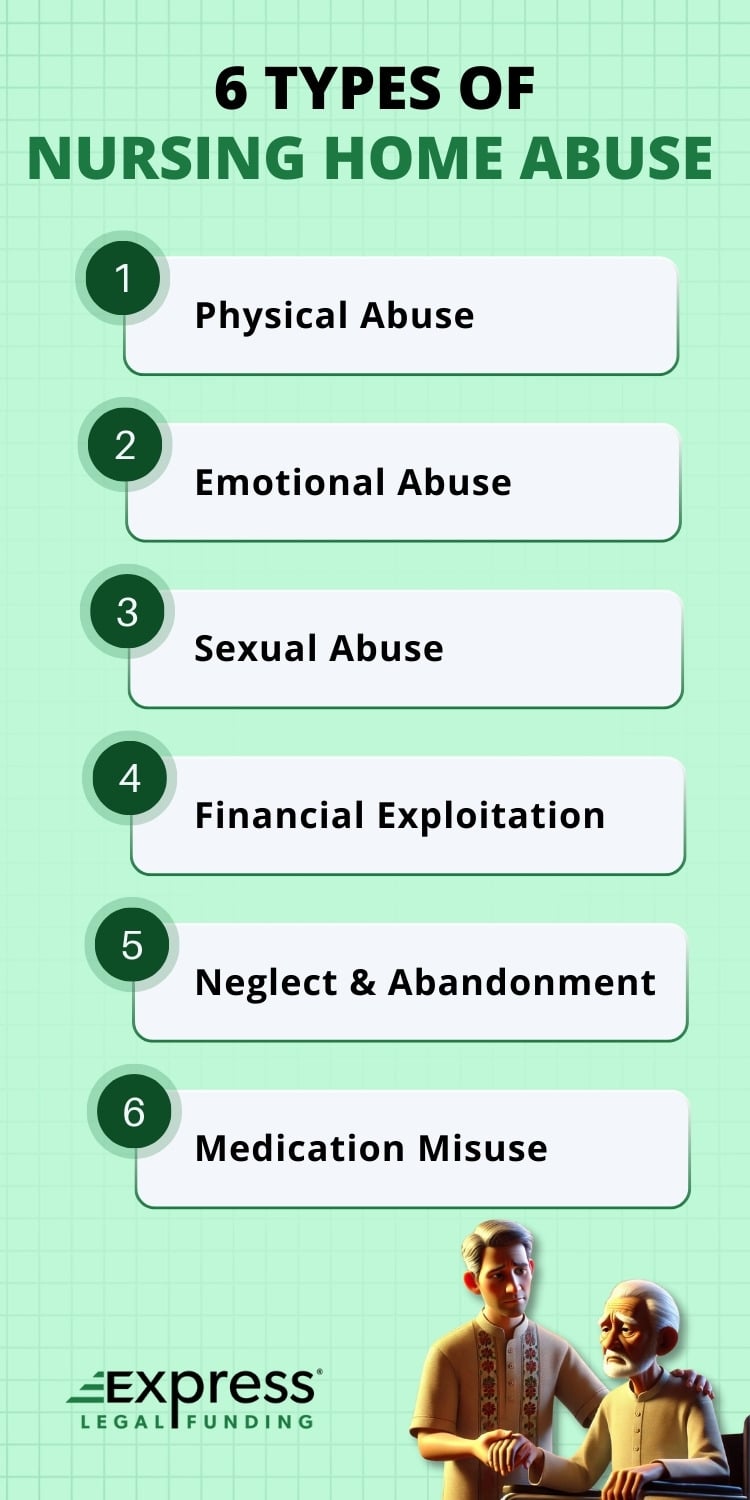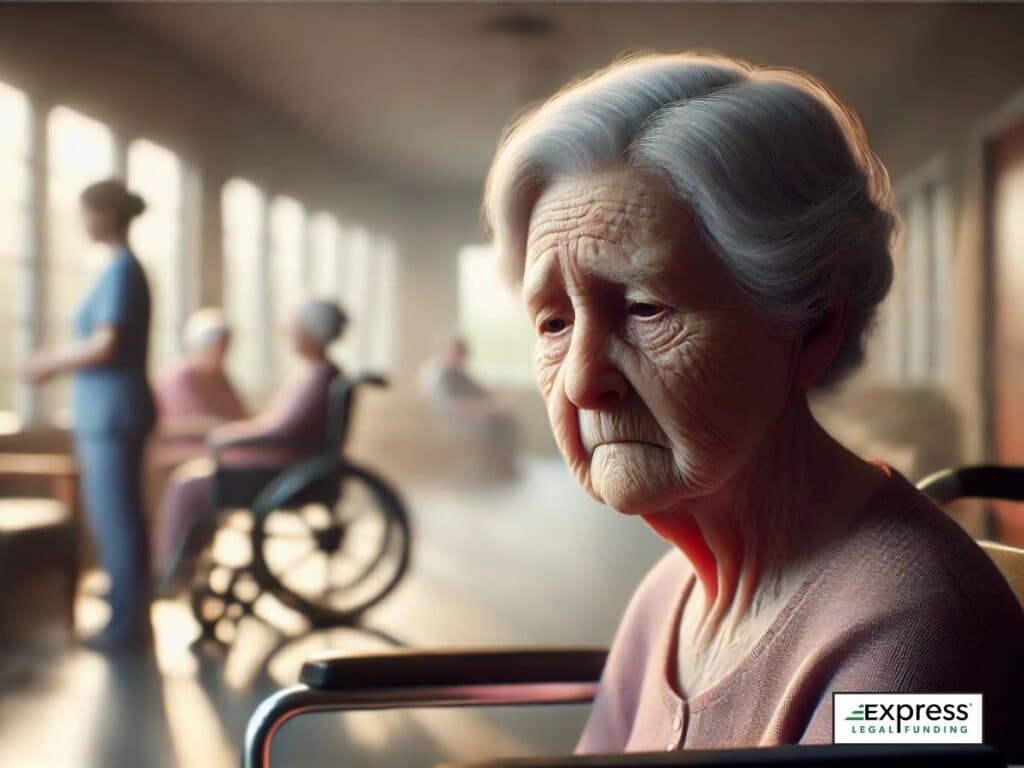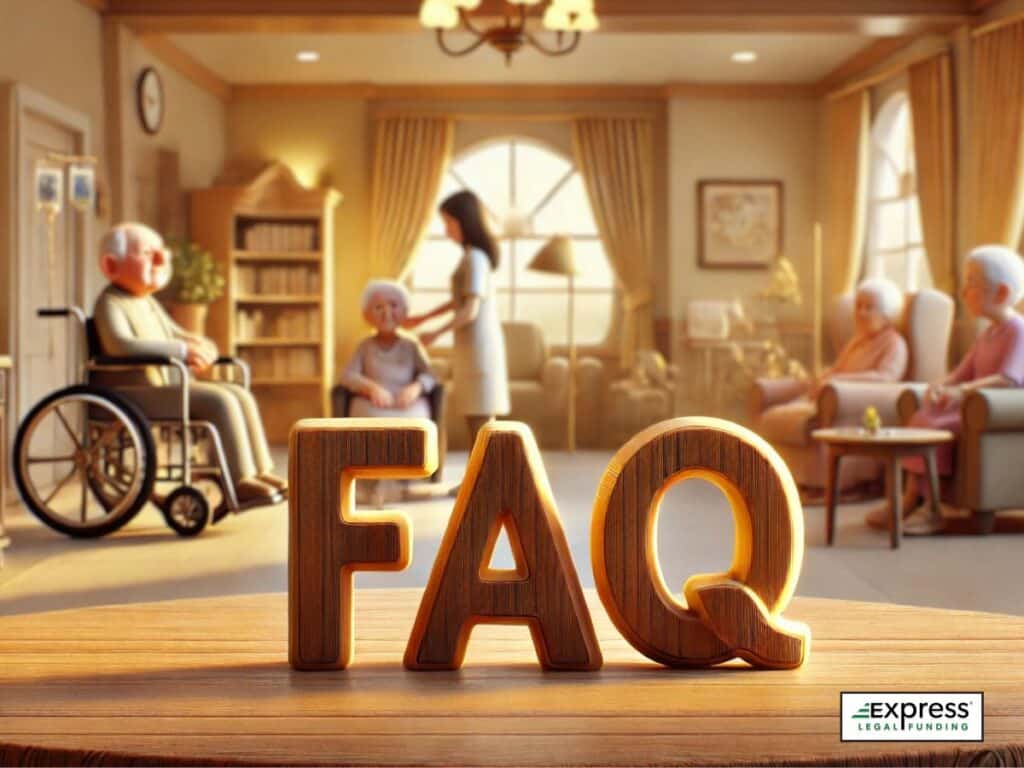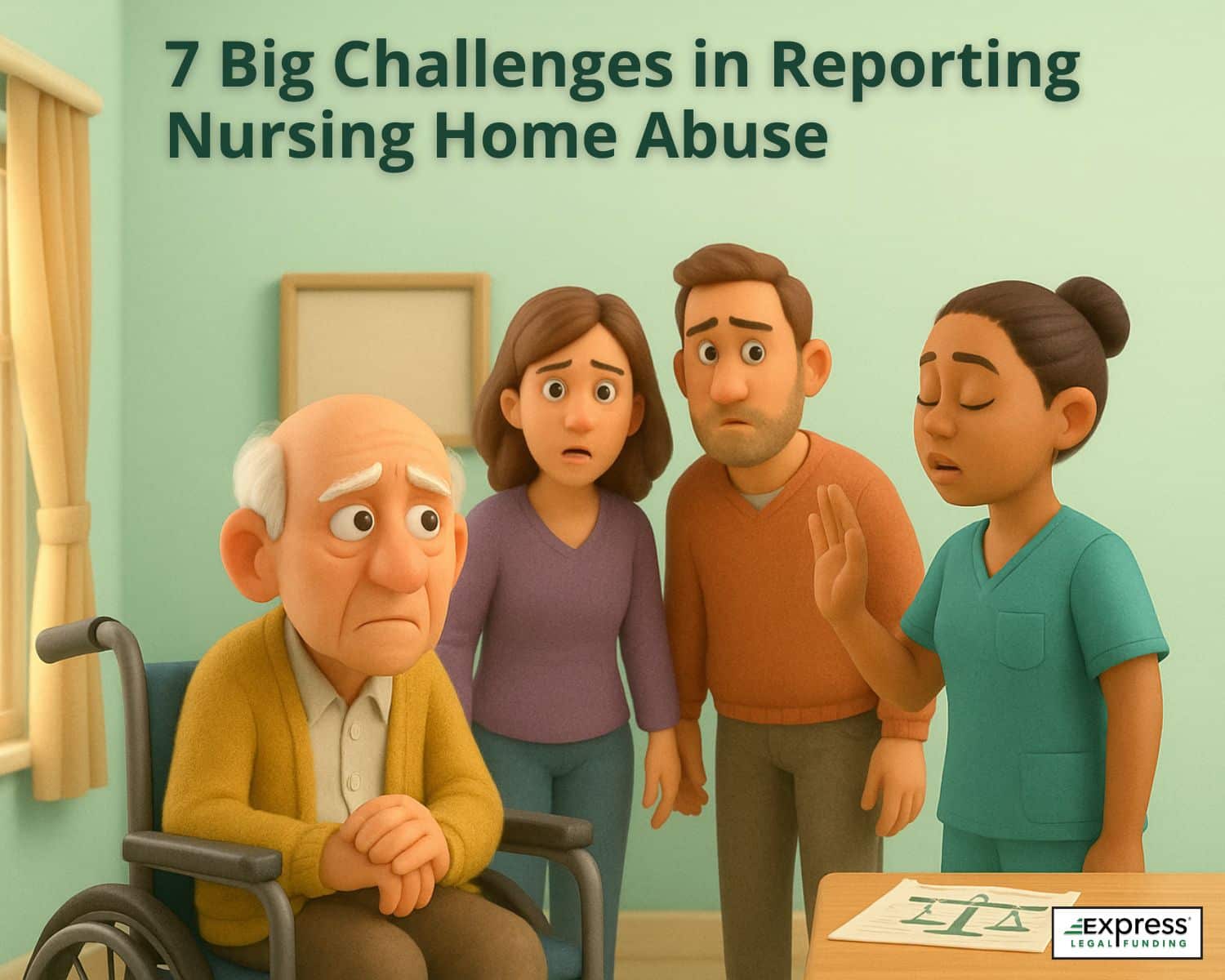
👴🏡 Placing a parent or spouse in a nursing home is never an easy decision, even for families grappling with overwhelming care needs, emotional strain, and financial burdens of taking care of their loved ones.
While nursing homes are designed to provide structured care and support, not all facilities uphold the standards of safety and dignity that residents deserve.
The reality of nursing home abuse is deeply concerning, putting countless vulnerable residents at risk. Despite their intended role as safe havens for the elderly, some facilities fail to deliver adequate care.
Cases of neglect, mistreatment, and even outright abuse continue to surface, leaving families devastated and residents suffering in silence, with thousands reported each year.

This issue not only threatens the well-being and dignity of elderly residents but also erodes trust in the institutions responsible for their care.
Addressing nursing home abuse is critical to ensuring that all residents live in a safe, respectful environment. Recognizing the warning signs and understanding what constitutes abuse empowers families, caregivers, and society to take action.
This guide will cover:
- The different types of abuse that can occur in nursing homes.
- How to identify early warning signs of mistreatment.
- The impact of abuse on victims and their families.
- Steps to prevent and address neglect and abuse.
By providing comprehensive information, we aim to equip victims, families, and caregivers with the knowledge needed to recognize, prevent, and take action against nursing home abuse. This guide also offers resources and legal support options for those seeking justice and accountability.
🛡️ Witnessed abuse or neglect in a senior care facility? Read our complete guide on How to Report Nursing Home Abuse the right way.
Types of Nursing Home Abuse & Warning Signs (Video Guide)
What Is Nursing Home Abuse? Definition & How It Happens
Nursing home abuse refers to the intentional or unintentional harm inflicted upon residents of care facilities by caregivers or other residents. This can manifest in various forms, ranging from physical harm and emotional abuse to financial exploitation and neglect.
Unlike isolated medical errors or unintentional oversights, nursing home abuse involves repeated patterns of mistreatment or a reckless disregard for a resident’s well-being.
Many victims suffer in silence due to fear, cognitive impairments, or dependence on their caregivers. The abuse can severely impact the health, safety, and dignity of the elderly as well as individuals with disabilities who rely on these facilities for their well-being.
What is the Difference Between Abuse and Neglect in Nursing Homes?
While both abuse and neglect result in harm to nursing home residents, they differ in nature and intent.
Abuse vs. Neglect in Nursing Homes: Key Differences & Examples
- Nursing home abuse is characterized by deliberate actions that cause harm or distress to a resident. This includes physical assault, emotional manipulation, or financial exploitation.
- Nursing home neglect involves failing to provide necessary care, which can lead to harm or distress. It may not always be intentional, but neglect results from inadequate attention to a resident’s needs, such as failing to provide food, medical care, or personal hygiene.
What Are the Common Causes of Nursing Home Abuse?
🚨👵 Nursing home abuse is more prevalent than we imagine it to be. Several factors contribute to this abuse and neglect:
- Understaffing
- Insufficient staff remains a top reason for neglect and abuse in many nursing homes. Understaffing leads to overworked caregivers who may struggle to provide adequate attention and care to each resident. This can result in neglect or even abusive behavior due to stress and burnout.
- Lack of Training
- A lack of training can lead to the mishandling of residents, improper use of restraints, or failure to recognize signs of distress. Staff may not be equipped to understand the needs of elderly residents and how to address challenging situations appropriately.
- Poor Oversight
- Inadequate supervision and staff monitoring can allow abusive or neglectful behavior to go unnoticed. Effective oversight ensures that caregivers adhere to standards of care and that any issues are promptly addressed.
What Are the Types of Nursing Home Abuse?
Nursing home abuse refers to any form of mistreatment or harm inflicted on elderly residents in long-term care facilities. It can be intentional or result from negligence, leading to serious physical, emotional, or financial consequences. The six main types of nursing home abuse include:
- Physical Abuse: Inflicting bodily harm through hitting, pushing, or improper restraint.
- Emotional Abuse: Verbal threats, humiliation, or isolation that causes psychological distress.
- Sexual Abuse: Any non-consensual sexual contact or harassment.
- Financial Exploitation: Unauthorized use of a resident’s funds, assets, or personal information.
- Neglect and Abandonment: Failing to provide proper care, leading to malnutrition, dehydration, or poor hygiene.
- Medication Misuse: Overmedicating, withholding prescriptions, or administering incorrect doses.
Recognizing these types of abuse is critical for protecting vulnerable residents. If you suspect mistreatment in a nursing home, take immediate action to report it and seek legal assistance.
Types of Nursing Home Abuse, Examples, and Warning Signs
| Type of Nursing Home Abuse | Abuse Examples | Warning Signs |
|---|---|---|
| Physical Abuse | - Hitting, slapping, or kicking residents - Misuse of restraints - Force-feeding or withholding food/water - Rough handling during care | - Unexplained bruises, cuts, fractures - Frequent hospital visits - Fearfulness around certain staff - Sudden changes in behavior, such as flinching |
| Emotional/Psychological Abuse | - Yelling, insults, or humiliation - Isolating residents from social activities - Threatening or intimidating speech - Ignoring resident requests or concerns | - Withdrawal from conversations or social events - Sudden mood swings, depression, or anxiety - Fear of speaking in front of staff - Unexplained weight loss due to emotional distress |
| Sexual Abuse | - Unwanted touching, groping, or forced nudity - Coercion into sexual acts - Forcing residents to watch sexual content - Sexual assault or rape | - Bruising or injuries near genital areas - Torn or stained clothing - Sudden emotional distress or withdrawal - Diagnosis of STIs without explanation |
| Financial Exploitation | - Unauthorized withdrawals from bank accounts - Misuse of power of attorney - Forcing changes to wills or financial documents - Overcharging for services or double billing | - Unexplained loss of money or valuables - Sudden changes in financial records - Confusion about financial status - Unpaid bills despite having sufficient funds |
| Neglect & Abandonment | - Failure to provide food, water, or medical care - Ignoring hygiene needs - Leaving residents alone for extended periods - Poor facility conditions (dirty rooms, soiled clothing) | - Malnutrition, dehydration, or weight loss - Untreated infections or bedsores - Poor hygiene, unwashed clothes, or strong odors - Unsafe or cluttered living conditions |
| Medication Misuse | - Overmedicating or unnecessary sedation - Withholding prescribed medications - Administering the wrong drug or incorrect dosage | - Sudden drowsiness or confusion - Rapid health deterioration - Medication records not matching prescriptions - Residents complaining of untreated pain |
1. Physical Abuse
In nursing homes, physical abuse results in bodily injury, pain, or impairment and is one of the most visible forms of abuse. It can have imminent and long-term effects on a resident’s health.

Examples of Physical Abuse:
- Hitting, slapping, or pushing residents
- Misusing restraints
- Force-feeding, withholding food and water
- Improper handling during care
Physical Abuse Warning Signs:
- Unexplained bruises, cuts, or fractures.
- Frequent hospital visits or medical treatment for injuries.
- Residents appear fearful of certain staff members
- Fearfulness or flinching when approached
- Staff reluctance to leave residents alone with family
2. Emotional/Psychological Abuse
This type of abuse causes mental pain, anguish, or distress through verbal or non-verbal acts and can severely impact a nursing home resident’s mental health and quality of life.

Examples of Emotional Abuse:
- Threatening, intimidating, humiliating, or isolating residents
- Yelling or using derogatory language
- Ignoring or belittling a resident’s needs or feelings
- Manipulating a resident into compliance through fear
Emotional Abuse Warning Signs:
- Withdrawal from social interactions or activities.
- Sudden and unexplained mood changes or erratic behavior, such as anxiety or depression.
- Fearfulness or reluctance to speak in the presence of certain staff members.
- Unexplained changes in sleeping or eating habits.
- Depression, anxiety, or sudden mood swings.
3. Sexual Abuse
A profoundly violating form of abuse that can cause both physical and emotional harm, involving non-consensual sexual contact of any kind with a nursing home resident.
Examples of Sexual Abuse:
- Unwanted touching or groping
- Forcing a resident to watch sexual content
- Coercion into sexual acts
- Sexual assault or rape
Sexual Abuse Warning Signs:
- Bruising or injuries around the genital area.
- Torn or stained clothing.
- Sudden and unexplained mood changes or erratic behavior, such as anxiety or depression.
- Diagnosis of sexually transmitted infections.
4. Financial Exploitation
Any unauthorized or improper use of a nursing home resident’s economic resources (often for personal gain). This type of abuse can deplete a resident’s savings and leave them financially vulnerable.

Examples of Financial Exploitation:
- Unauthorized withdrawals from bank accounts.
- Identity theft or forged signatures.
- Coercing residents into changing wills or financial documents.
- Misusing power of attorney or guardianship authority.
- Overcharging for services or billing for unprovided care.
- Stealing cash, credit cards, or valuables.
Financial Exploitation Warning Signs:
- Missing funds or unexplained financial transactions.
- Sudden changes in financial status or unpaid bills.
- Residents express confusion about their financial situation.
- Sudden changes in legal documents.
- Missing personal belongings or valuables.
- Confusion over financial matters despite prior competency.
- Unpaid bills despite sufficient funds.
5. Neglect and Abandonment
Failure to provide necessary care, leading to harm or distress. Abandonment occurs when a caregiver deserts a nursing home resident, leaving them without essential support.

Examples of Neglect:
- Failure to provide food, water, or medical care.
- Ignoring personal hygiene needs.
- Leaving residents unattended for long periods.
Neglect Warning Signs:
- Malnutrition or dehydration
- Poor hygiene or untreated medical conditions
- Bedsores or other signs of neglect
- Poor hygiene and dirty clothing
- Unsafe or cluttered living environment
- Frequent infections or preventable health complications
6. Medication Misuse
Medication misuse involves the improper administration or withholding of medication by nursing home staff, which can lead to adverse health effects in a resident.

Examples of Medication Misuse:
- Overmedicating or sedating residents unnecessarily.
- Withholding prescribed medication.
- Administering the incorrect prescriptions or dosages.
Medication Misuse Warning Signs:
- Extreme drowsiness or confusion.
- Unexpected health decline or changes in medical condition.
- Discrepancies in medication records.
Other Signs of Abuse: Environmental and Care Indicators
Identifying abuse in nursing homes requires vigilance, as many victims are unable or afraid to report mistreatment. While direct signs of abuse may be visible on the resident’s body or behavior, environmental factors can also indicate neglect or systemic issues within a facility.

The condition of a nursing home often reflects the level of care provided to its residents. Poor maintenance, unsanitary conditions, and understaffing can be strong warning signs of abuse or neglect.
Unsanitary Living Conditions
A properly managed nursing home should maintain a clean and hygienic environment. Signs of neglect in facility upkeep include:
- Dirty or foul-smelling rooms: Strong odors of urine or feces may indicate improper cleaning and neglect of residents’ hygiene needs.
- Unchanged bedding and soiled clothing: Linens should be regularly replaced, and residents should be provided with clean garments.
- Presence of pests: Rodents, insects, or other vermin can signal a failure to maintain proper sanitation.
- Unsafe or cluttered walkways: Obstructed hallways and uncleaned spills increase the risk of falls and injuries.
- Untreated medical conditions: Bedsores, infections, and other preventable health issues may indicate neglect.
- Medication mismanagement: Residents receiving incorrect dosages or missing prescribed medications.
- Delayed emergency response: Slow reaction times to medical crises suggest understaffing or a lack of trained personnel.
- Residents left unattended for long periods: Lack of supervision can lead to accidents, dehydration, or malnutrition.

Real-Life Nursing Home Abuse Cases
Examining specific instances of nursing home abuse reveals systemic issues that allow such mistreatment to persist. Below are several notable cases that highlight these challenges:
The Hacienda HealthCare Sexual Abuse Case
In 2018, a 29-year-old woman with severe intellectual disabilities, who had been a resident at Hacienda HealthCare in Phoenix, Arizona, since childhood, unexpectedly gave birth. Her pregnancy went unnoticed by the facility’s staff until she went into labor, leading to the discovery that she had been sexually assaulted.
- Nathan Sutherland, a licensed practical nurse responsible for the victim’s care, was arrested after DNA testing confirmed his paternity.
- Sutherland had cared for the victim numerous times between 2012 and 2018. In 2021, he pleaded guilty to sexual assault and abuse of a vulnerable adult and was sentenced to 10 years in prison.
Systemic Issues Revealed:
- Lack of Oversight: The pregnancy remained undetected until childbirth, indicating severe lapses in medical supervision and daily care.
- Inadequate Safeguards: The facility failed to implement measures to protect vulnerable residents from potential abuse by staff members.
Response: The case prompted widespread outrage, leading to the resignation of Hacienda HealthCare’s CEO and increased scrutiny of care practices in similar facilities. Arizona state officials implemented stricter regulations and oversight mechanisms to prevent such incidents in the future.
Centers Health Care Neglect Settlement
In 2024, Centers Health Care, operating four nursing homes in New York, agreed to pay a $45 million settlement to the state of New York following allegations of severe neglect and mistreatment of residents.
The lawsuit claimed that residents were left in squalid conditions, with some forced to sit in their own waste for extended periods.
Systemic Issues Revealed:
- Misallocation of Funds: Owners were accused of diverting Medicaid and Medicare funds intended for resident care to enrich themselves and their associates.
- Understaffing: Chronic understaffing led to inadequate care, with residents suffering from dehydration, malnutrition, and untreated bedsores.
Response: As part of the settlement, $35 million was allocated to improve resident care and staffing, and $8.75 million was designated for restitution to Medicaid and Medicare programs.
Independent monitors were appointed to oversee the implementation of reforms and ensure compliance with care standards.
Ted & Noel: Homophobic Abuse in a London Care Home
The documentary “Ted & Noel” sheds light on the abuse faced by activist Ted Brown’s partner, Noel Glynn, a dementia patient, in a South London nursing home. Glynn, a member of the LGBTQ+ community, endured homophobic abuse from care home staff, including physical assaults and derogatory remarks.
Systemic Issues Revealed:
- Discrimination: The case highlights the vulnerability of LGBTQ+ elders in care facilities, where they may face prejudice and inadequate protection.
- Lack of Training: Staff members were ill-equipped to provide compassionate and inclusive care to LGBTQ+ residents.
Response: The documentary sparked conversations about the need for LGBTQ+-specific training for care home staff and the implementation of policies to protect residents from discrimination and abuse.
Runwood Homes: Neglect and Mismanagement
Runwood Homes, a UK-based care home operator, faced multiple allegations of neglect and mismanagement across its facilities. Incidents included unsanitary living conditions, inadequate medical attention, and failure to address residents’ needs.
Systemic Issues Revealed:
- Inadequate Staffing and Training: Staff shortages and a lack of proper training led to substandard care and neglect of residents.
- Poor Regulatory Compliance: Facilities operated without adhering to established care standards, resulting in harm to residents.
Response: Regulatory bodies conducted investigations, leading to fines and, in some cases, closure of facilities. The company implemented action plans to address deficiencies and improve the quality of care.
What Families and Caregivers Can Do About Nursing Home Abuse
Recognizing the Signs Early: Importance of Vigilance and Regular Check-Ins
Regular visits and vigilance are key to identifying potential abuse early. By frequently checking in on your loved ones, you can observe changes in their physical condition, behavior, or environment.
These visits also provide opportunities to engage with staff and assess the overall atmosphere of the facility.

How to Maintain Open Communication with Nursing Home Residents
- Open communication is essential for understanding the experiences and needs of nursing home residents.
- Encourage your loved ones to share their feelings and concerns. Ask open-ended questions and listen actively to their responses.
- Building trust ensures that they feel comfortable discussing any issues they face.
How to Respond to Suspected Abuse
- If you suspect abuse, it’s crucial to document your observations thoroughly. Take detailed notes on any physical signs, behavioral changes, or environmental conditions that raise concerns. Photograph any visible injuries and keep records of conversations with staff or other residents.
- Who to Contact: Facility Administrators, State Agencies, Elder Abuse Hotlines
- Once you have documented your concerns, report them to the facility administrators. If the response is inadequate or you believe the situation is urgent, contact state agencies responsible for overseeing nursing homes. Additionally, elder abuse hotlines can provide guidance and support in taking further action.
Further reading: 7 Big Challenges in Reporting Nursing Home Abuse
Resources for Victims and Families of Nursing Home Abuse: Helplines and Support Organizations
Here are some organizations that can help families and victims of nursing home abuse. These helplines and support organizations offer critical resources for protecting seniors, holding abusers accountable, and ensuring high-quality care in nursing homes across the United States.
National Helplines for Elder Abuse
These hotlines provide immediate support and resources for reporting abuse and seeking assistance.
National Center on Elder Abuse (NCEA)
- Website: ncea.acl.gov
- Purpose: Provide resources, education, and tools to prevent elder abuse. While it doesn’t investigate cases, it directs individuals to the proper authorities.
Adult Protective Services (APS) – State-Specific Hotlines
- Website: napsa-now.org/get-help/how-to-report/
- Phone: Varies by state (check the website for contact numbers)
- Purpose: Investigates reports of elder abuse, neglect, and financial exploitation. Each state has its own APS agency handling cases locally.
Eldercare Locator (Operated by the U.S. Administration on Aging)
- Phone: 1-800-677-1116
- Website: eldercare.acl.gov
- Purpose: Connects individuals with local resources, including legal aid, housing, and abuse prevention services.
National Domestic Violence Hotline (for Elder Abuse & Caregiver Neglect Cases)
- Phone: 1-800-799-7233
- Website: thehotline.org
- Purpose: Offers confidential support, counseling, and referrals for victims of abuse, including seniors facing mistreatment in nursing homes.
Legal Assistance and Advocacy Groups
These organizations provide legal aid, advocacy, and education for victims of elder abuse.

National Consumer Voice for Quality Long-Term Care
- Website: theconsumervoice.org
- Purpose: Advocates for nursing home residents’ rights and connects families with resources to report abuse and neglect.
Legal Services for the Elderly (LSE)
- Website: justiceinaging.org
Purpose: Provides free legal representation to older adults facing elder abuse, financial exploitation, or wrongful eviction from nursing homes.
National Academy of Elder Law Attorneys (NAELA)
- Website: naela.org
- Purpose: Helps individuals find qualified elder law attorneys specializing in abuse, financial fraud, and guardianship issues.
National Association of Nursing Home Attorneys (NANHA)
- Website: nursinghomeabusecenter.com
- Purpose: Provides legal resources for victims of nursing home abuse and their families seeking compensation or legal recourse.
Support Organizations and Elder Rights Groups
These groups offer advocacy, support networks, and guidance for families navigating nursing home concerns.

National Long-Term Care Ombudsman Program (LTCOP)
- Website: ltcombudsman.org
- Purpose: Ombudsmen advocate for nursing home residents, investigate complaints, and help resolve abuse or neglect issues.
AARP Fraud Watch Network & Elder Abuse Support
- Website: aarp.org/money/scams-fraud/
- Purpose: Educates seniors and families about financial abuse, scams, and mistreatment in long-term care settings.
National Council on Aging (NCOA): Elder Justice Initiative
- Website: ncoa.org
- Purpose: Provides educational resources and programs to prevent elder abuse and ensure quality care for seniors.
Justice in Aging: Elder Justice Program
- Website: justiceinaging.org
- Purpose: Works to end elder abuse by influencing policy changes and offering legal advocacy for seniors facing neglect or mistreatment.
Additional Resources for Families
Families of nursing home residents often need guidance on legal options, reporting abuse, and ensuring proper care.
Nursing Home Compare (Medicare.gov)
- Website: medicare.gov/care-compare/
- Purpose: Allows families to research and compare nursing home ratings, inspection reports, and violations.
American Bar Association: Commission on Law & Aging
- Website: americanbar.org/groups/law_aging/
- Purpose: Offers resources on legal rights, guardianship, and advance care planning for older adults.
Better Business Bureau (BBB) Nursing Home Complaints
- Website: bbb.org
- Purpose: Provides consumer reviews and complaint resolution services for families dealing with substandard nursing home care.
FAQs: Nursing Home Abuse & Legal Rights

What are the warning signs of nursing home abuse?
Nursing home abuse can manifest in various ways, and early detection is critical. Common warning signs include:
- Physical Abuse: Unexplained bruises, fractures, burns, or frequent hospital visits.
- Emotional Abuse: Sudden mood changes, withdrawal, anxiety, depression, or fearfulness around certain staff members.
- Sexual Abuse: Bruising around the genital area, torn or stained clothing, unexplained STIs, or unusual fear of being touched.
- Financial Exploitation: Missing funds, unauthorized bank withdrawals, sudden changes in legal documents, or confusion about financial matters.
- Neglect & Abandonment: Malnutrition, dehydration, bedsores, poor hygiene, dirty clothing, untreated medical conditions, or unsafe living conditions.
- Medication Misuse: Overmedication, under-medication, unexpected health decline, or confusion due to incorrect prescriptions or dosages.
If you notice these signs, take immediate action to protect your loved one.
Who is most at risk for nursing home abuse?
Certain residents are more vulnerable to abuse and neglect, including:
- Elderly residents with cognitive impairments (e.g., Alzheimer’s or dementia) who may struggle to communicate abuse.
- Individuals with physical disabilities who rely entirely on caregivers for daily needs.
- Residents with limited or no family involvement who lack regular oversight from loved ones.
- Those in understaffed or poorly regulated facilities, where neglect and abuse are more likely to occur.
- Nonverbal or socially isolated residents who may be unable to report mistreatment.
Proactively monitoring the care and well-being of at-risk residents can help prevent abuse.
Can I sue a nursing home for abuse or neglect?
Yes, you can file a lawsuit against a nursing home for abuse or neglect if:
- The facility failed to provide adequate care, leading to injury or harm.
- There is evidence of physical abuse, emotional mistreatment, neglect, financial exploitation, or sexual abuse.
- A resident suffered due to understaffing, poor training, or failure to follow safety protocols.
Legal options include:
- Personal Injury Lawsuits: Seek compensation for medical expenses, pain, suffering, and emotional distress.
- Wrongful Death Claims: If neglect or abuse led to a resident’s death, families may file for damages.
- Class Action Lawsuits: If multiple residents were affected, a class action may be an option.
An experienced nursing home abuse attorney can help assess your case and determine the best legal course of action.
Final Thoughts on Protecting Your Loved Ones from Nursing Home Abuse
Recognizing, reporting, and taking legal action against nursing home abuse is essential to protecting vulnerable residents. If you suspect abuse, act immediately by documenting evidence, reporting it to the proper authorities, and consulting an attorney.
Ensuring the safety, dignity, and well-being of nursing home residents is a responsibility that families, caregivers, and society must take seriously.
Seek Justice for Nursing Home Abuse Today
Concerned about nursing home abuse? Take action today. Contact an elder abuse hotline, report suspected mistreatment, or consult a nursing abuse lawyer to protect your loved one’s rights.
How Express Legal Funding Can Help Victims of Nursing Home Abuse
Nursing home abuse cases can take months or even years to resolve, leaving victims and their families struggling with financial burdens while seeking justice.
At Express Legal Funding, we provide pre-settlement funding to help victims of nursing home abuse cover essential living expenses, medical bills, and other costs while their case is ongoing.

Why Choose Express Legal Funding?
- No-Risk Funding: You only repay if you win your case. If your lawsuit is unsuccessful, you owe nothing.
- Fast Financial Relief: Get approved and receive funding in as little as 24 hours.
- Covers Essential Expenses: Use funds for medical care, relocation to a safer facility, or everyday costs while waiting for a fair settlement.
- Trusted by Thousands of Victims & Attorneys: We work directly with your attorney to ensure a smooth funding process without hidden fees.
How It Works:
- Apply Online or By Phone: A simple, free application process with no credit check required.
- Case Review: We work with your lawyer to assess the strength of your case.
- Get Funds Quickly: Once approved, you will receive cash, typically within 24 hours.
Supporting Families Seeking Justice
Pursuing legal action against a negligent nursing home can be financially challenging. Express Legal Funding is committed to helping families stay financially stable while fighting for the justice their loved ones deserve.
Need Pre-Settlement Funding During Your Nursing Home Abuse Lawsuit?
Call Express Legal Funding or apply online today to get the lawsuit funding you need to stand up against elder abuse.


